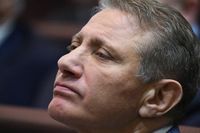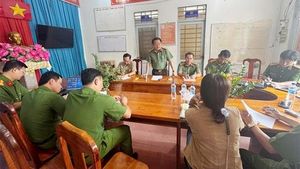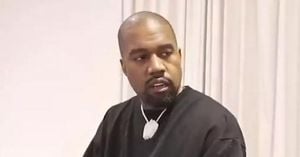In a surprising turn of events, the United States has removed Karina Rotenberg from its sanctions list, a decision that has raised eyebrows given her ties to Russian oligarch Boris Rotenberg, a close associate of President Vladimir Putin. This decision was announced by the U.S. Department of the Treasury's Office of Foreign Assets Control (OFAC) on April 2, 2025, reflecting a significant shift in U.S. sanctions policy.
Karina Rotenberg, who was added to the sanctions list in March 2022 amid the escalating conflict in Ukraine, was part of a broader wave of sanctions that targeted 19 Russian businessmen and 47 of their family members. The imposition of these sanctions was a direct response to Russia's military actions in Ukraine, which have drawn widespread condemnation from Western nations.
While the exact reasons for her removal from the sanctions list remain unclear, the U.S. has simultaneously expanded its sanctions against other Russian entities. On the same day, three Russian citizens—Yuri Belyakov, Vyacheslav Vidanov, and Sokhrab Gairat—were added to the sanctions list, along with several companies, including OOO Edison, OOO Kolibri Grupp, and OOO Skai Freim. Additionally, the bulk carrier AM Theseus, registered under the Russian flag, was also sanctioned.
Boris Rotenberg has been under U.S. sanctions since March 2014, and he faces similar restrictions from countries such as Great Britain, Japan, Canada, Switzerland, Australia, and New Zealand. The sanctions against him were imposed due to his close ties to the Russian government and his involvement in various businesses that have reportedly benefited from state contracts.
Despite the sanctions imposed by the EU and the U.S., Karina Rotenberg has continued to travel internationally. Reports from the summer of 2024 revealed that she posted a video on Instagram from an elite resort in Roquebrune-Cap-Martin, France, where she was seen practicing Pilates. This has led to speculation about the extent of her financial independence and the nature of her assets.
According to various reports, Karina Rotenberg has been a U.S. citizen since at least 2013, having married Boris Rotenberg in 2009. Her citizenship status complicates the narrative surrounding her sanctions, as she was only sanctioned by Washington in 2022, after which an American bank seized her house due to debts.
Interestingly, the European Union did not impose sanctions on Karina Rotenberg, allowing her a level of freedom that many of her peers do not enjoy. This discrepancy has prompted discussions about the effectiveness and consistency of sanctions as a policy tool.
In addition to her personal circumstances, Karina Rotenberg plays a significant role in the equestrian community. She has been the president of the Moscow Equestrian Federation since 2011 and is known for her involvement in maintaining elite horse stables in Europe alongside her husband. Reports indicate that the couple owns at least 24 horses, some valued at €900,000 each.
The lifting of sanctions against Karina Rotenberg has sparked debate among analysts and policymakers. Some argue that the decision may reflect a strategic move by the U.S. to foster dialogue or to differentiate between individuals closely tied to the Kremlin and those who may not directly influence Russian policy.
Moreover, the recent lifting of sanctions against Dmitry Pumpyansky, the founder of the Trubnaya Metallurgical Company, his wife Galina, and their son Alexander, further complicates the landscape of U.S. sanctions. These individuals had been under sanctions since 2022, and their removal from the list coincides with the broader reassessment of sanctions strategies by the U.S. government.
As the geopolitical landscape continues to evolve, the implications of these changes in sanctions policy will likely be scrutinized by both supporters and critics of the current administration. The effectiveness of sanctions as a means to influence behavior in Russia remains a contentious issue, with varying opinions on their impact.
In conclusion, the recent developments regarding Karina Rotenberg highlight the complexities and challenges of sanctions policy in the context of international relations. As the U.S. navigates its approach to Russia amidst ongoing tensions, the decisions made regarding individuals like Karina Rotenberg will continue to attract attention and debate.







